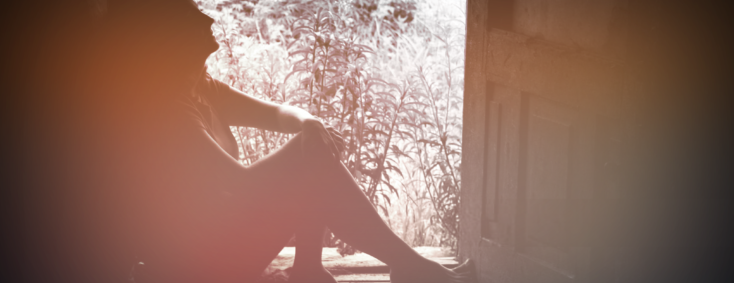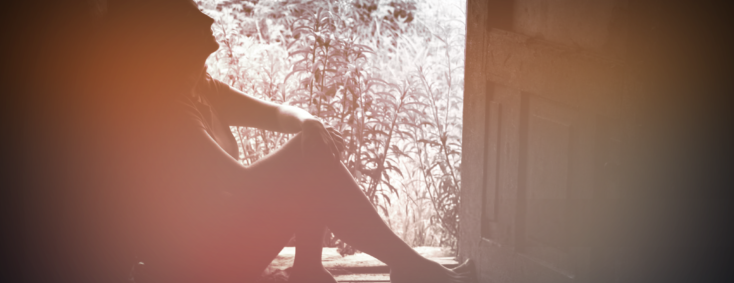
By Leah Zeiger
When the unthinkable happens, it can be hard to know the right way to respond. If your friend is ever sexually assaulted, you may feel angry, confused, overwhelmed, even scared. All of these emotions are perfectly valid, but are probably just a tiny fraction of what your friend is feeling right now. It’s important to be sensitive to what they’re going through, and support them through this traumatic moment in ways that will be nurturing and empowering. Not sure where to start? Here are seven ways you SHOULDN’T react:
- Don’t ask them unnecessary questions
How did it start? Did you like them at first? Do they know they raped you? Are you going to talk to them about it? Why didn’t you tell me sooner? Or the classic: What were you wearing?
None of these questions are at all important or relevant. What’s important is what your friend just told you. That’s all.
Try asking questions like: Are you safe now? Do you need to go to the hospital/police station, and would you like me to go with you? Do you need help telling anyone else? Where do you need to be where you feel safe? What do you need right now?
- Don’t talk about the rapist
Don’t say things like, “Wow, I never thought that person would have done something like this. They were always so nice and funny, I remember this one time when I was hanging out with them and…” It not only totally dismisses what your friend just told you, but also makes everything about the rapist and how surprising it is that they did it, rather than focusing on the victim and how much help they will need to get through it.
Try this: Don’t say anything about the rapist. At all. You don’t even need to ask who it was, if that information wasn’t already offered. That’s not important. What’s important is for you to be there for your friend.
Don’t go telling anyone
You aren’t in the right to tell anyone that your friend is a survivor. Ever. This is not your story to tell. Do not assume that they would “want people to know,” and do not take it upon yourself to spread the news. This is often how false rumors get started, and rumors about being raped can lead to victim blaming and shaming.
Try this: Ask your friend who they have told, and if they would like to tell anyone else. Always reassure your friend that you will not tell anybody, and that their personal information is safe with you.
Don’t treat them like they’re damaged goods
Your friend is a human who’s been raped, not a toaster that’s been underwater. My point is, THEY STILL WORK! They aren’t broken. Don’t exclude them from plans or pretend like they aren’t there. Don’t purposefully stop having fun when they walk in the room. Don’t act like they are no longer a functioning human being who still has feelings and a life.
Try this: Always invite them to the fun outings you would normally take them to (even if they keep saying no), keep having that fun conversation when they walk in the room, and never ever ignore them. It’s really that simple.
On the other hand, don’t act like nothing ever happened
Like I said, your friend still works. But that doesn’t mean they will be the same person they were before they were raped. As much as I hate to admit it, becoming a survivor changes who you are in one way or another, and usually that change is painful and will negatively affect them at first. Don’t get mad at them when they turn down those invitations. Don’t assume that everything will go back to normal after a few days. And don’t, under any circumstances, ever say something like, “You’ve been sad for so long, why don’t you just, I don’t know, forget about it?”
Try this: Allow them to be sad, to be angry, to be confused. Validate their feelings by asking them what they need and telling them that you will be there through all of the ups and downs of the roller coaster they’re on, and reassuring them you’ll still be there when they come out the other side.
Don’t make it all about you
“You never want to hang out with me anymore.” “I feel like I can’t be sad around you.” “Do you not want to be my friend?” “Why aren’t you ever there for me when I need it?” “Am I a bad friend to you?”
All of these responses make everything about you, and not your friend, the victim. Don’t take anything that happens personally—your friend’s reaction to what happened is just that, theirs, so don’t take that away from them.
Try this: When you feel like you want your old friend back, don’t accuse them of neglecting your friendship. Instead, remind them that you love them, and tell them you know that this doesn’t define who they are—that you believe in their ability to get through this.
Don’t ever, ever, ever blame them.
I saved this one for last because, while it’s the most obvious, it’s also the MOST common. If you blame them, then you’ve just done the absolute worst thing you could do to a victim of rape, and you’ve made their worst fears come true.
Try this: “It’s not your fault. You didn’t deserve this.”
Now that we’ve gone over what you shouldn’t do, here’s your step-by-step guide for what you SHOULD say to your friend after they tell you they’ve been raped:
Step 1: Acknowledge what they’ve said. “Thank you for trusting me enough to tell me that.”
Step 2: Recognize how hard that must have been for them to say. “You are so brave for confiding in me, and I’m so proud of you.”
Step 3: Tell them you believe them. “I believe you.”
Step 4: Remind them that you love them. “I’m so glad that you survived that, and that you are surviving it right now. I’m happy that you are so strong, and so grateful that you’re my friend.”
Step 5: Let them tell you what they need. “What do you need right now? I will give you my unconditional love and support, and I will help you in whatever way I can.”
It’s important to remember that you are only human, and you might not feel capable of providing your friend with the level of support they need to get through their sexual assault. It’s okay to set boundaries and do what you need to do for your own emotional health. If you think your friend needs more support than you’re able to offer, suggest they contact RAINN by phone at 1-800-656-HOPE (4673) or by online chat at www.rainn.org. If they experienced sexual assault as part of a larger pattern of abuse in their relationship, loveisrespect advocates can be reached 24/7 at 1-866-331-9474, by online chat at www.loveisrespect.org, or by texting LOVEIS to 22522.
Leah Zeiger is a survivor of relationship abuse and founder of The Sunflower Project, which promotes survivor healing through the art of dance. You can follow Leah’s work at www.towardsthesun.org.
Content retrieved from: https://www.loveisrespect.org/content/7-ways-not-to-react-when-your-friend-is-sexually-assaulted/.

